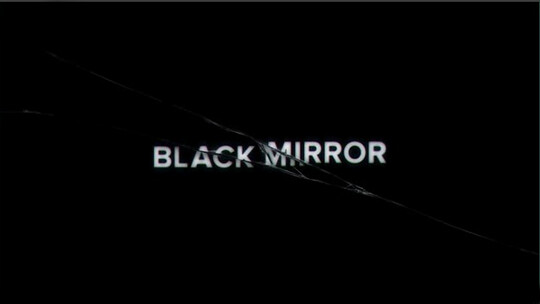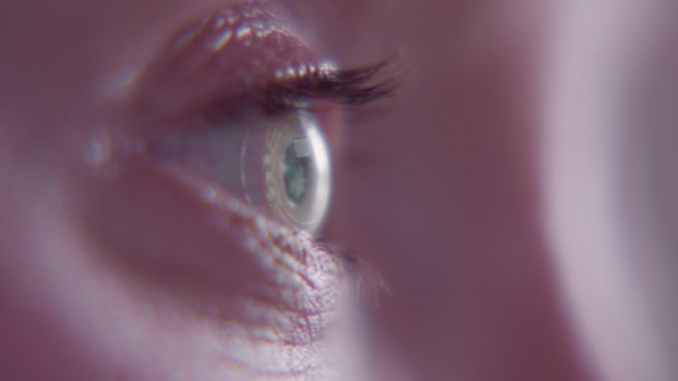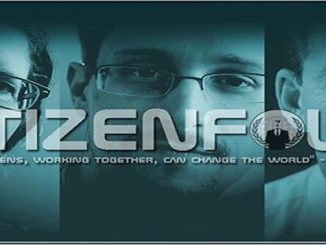
The television series ‘Black Mirror’ created by Charlie Brooker in 2011 had become one of British media’s timely brilliant creations, first aired on Channel 4 before making its way to Netflix. This 22-episode series made its way through new media successfully as a form of dystopian superficial exaggeration of a variation on the future. The main theme circulated within the series is based off societies enslavement to technology, particularly the hostile and precarious nature of it. The prevalent impacts of the internet as technology advances brought about interconnectivity between communities but also portrays a dark side that may be detrimental to society in a tragically realistic way; provocative, destructive and eventual death. The notion that Black Mirror is classified under a dystopian fiction appears not be a far cry from the possibility of it becoming our reality sooner than we realise. This essay will be focusing primarily on “Nosedive”, it places the context of addiction, invasive and alienating nature of the internet.
Black Mirror Nosedive Featurette by Netflix. Source – https://youtu.be/R32qWdOWrTo
Discourse Within Society
The use of 5-points rating system throughout the episode is an accurate representation of an oppressive society governed by “toxic technocultures” (Massanari, 2017). As the sharing and distribution of knowledge with each other in the community transcend meaning, it also conjures a false identity where society is pressured into displaying the best versions of themselves that is universally accepted. This idea of a fictitious persona questions the integrity of users particularly on social media platforms, where their public image is frequently very visible and prominent to everyone, be it an accurate representation of one’s self or a made to believe mirage.
It is written around a feint world where the amount of ‘likes’ and followers determines a person’s occupation and lifestyle prospects. This idea can be understood through a physical social hierarchy, where exploitation of structural bias became subjected to modern internet discussions. (Noble; Safiya, 2018) The obsession over social status defeated the purpose of the internet being created to foster an open and fair medium for marginalized and suppressed voices (Berners-Lee, 2019). Rather it emphasizes the gap on the already existing division between cultural groups, stressing on power and influence as a measurement for value in life. It was made evidently clear that it did not necessarily make the people in the town happy, yet they are conformed to this version of society due to how integrated technology already was in their lives.
Perpetuating Ideas Of Power and Greed
“Media manipulation … to manage or utilize skillfully to control … by artful, unfair, or insidious means especially to one’s own advantage” (Fitzpatrick, 2018)
According to Lusoli and Turner (2021), Silicon Valley illustrates a platform dominated by capitalistic ranking and algorithm. Black mirror successfully paints a picture where the climb for status and power threshold transcends to its users. Coming from a point of being economically driven, operations within the platform itself are unlikely to be in the best interest of its users, compromising privacy and susceptiveness to manipulation. Likewise, platforms claim to act as intermediary actors or a utility facilitating information without alteration of the actual meaning being circulated. (Flew et al., 2019) However, their heavy involvement in the process of streamlining acceptable information is deep-rooted into the core of the organisation through self-regulation and ability to govern lives of people to a great extent. As such, their status within the monopolistic market bestows them power to change the way society should think and should not be viewed as a separate entity.
Social Media at a glance
This adversity is shown through the main character abiding by society’s expectations to a point where she would be contented, however this symbolism of being in control blinds her from the fact that she is actually governed by the value of this ranking system when in actual fact they are simply numbers on a device. A blue tick on Twitter showcases verified individuals, usually with a certain level of influence on society. This notion of a tick is an assigned value and converted to a symbol of power that is universally recognised. “Don’t look like a 2.8” (Lacie, “Nosedive”, Black Mirror) mentions of a general consensus on how a person should look or present themselves. These preconceived notions are placed in the hands of the people whom we put on a pedestal and are the same people that define what is morally right within the society (Popiel, 2018). An action that is morally acceptable under the universal law of human behaviour should not mean that it is justifiable due to the nature that this came to pass. The manipulative capacity of social media do not go unnoticed but rather subconsciously influence users due to sheer exposure and involvement in their lives. It is a computational layer embedded into the infrastructure of a smart city influencing the very reality we reside within. (Pesce, 2017)
Real life application and social burden

The significance of this can be witnessed through China’s social credit system aimed to control nation culture and values (Nawijn, 2020) by perpetuating ideas of surveillance and government power with assistance of technology. The idea that artificial intelligence (AI) is the future in a data driven economy draws a fine line between protection for oneself and ultimately suffocating a society, weaponized to do more harm than good. As we are approaching a fully digitalized world, our digital footprints stay imprinted on the web and can be easily traced back to. Much like COVID-19 contact tracing, it raises uncertainty if transparent surveillance is used for the greater good of the collective community or for ill-intent. (Sorolla-Romero et al. ,2021)
As reliance on technology becomes embedded into our lives, it has grown into a luxury only for people who can afford it. Lacking consideration for developing countries where poverty is apparent and access to technology is scarce, furthering the burden to the economic disparity that currently exist. Expecting developing countries to keep up with technological advancements is a selfish notion, as they do not reap the benefits that others would enjoy, hindering their development due to the inability to keep up with the pace of innovation.
The film “Bandersnatch” as part of the Black Mirror series directed by David Slade introduces an interactive film where users are made to believe they control the flow of the film, but inevitably everyone comes to the same story conclusion, despite having made differing choices. This foreshadows the act of viewing the show through a lens, like how we are scrutinized through the eyes of moderators or the government. As such, the reality is that the transgression of platforms and the internet is made to be free for all, however as users, we have little power over how much control we have under their grasp.
What IS the future?

Towards the end of the episode, the removal of the smart contact lens seemingly symbolized a stripping of identity from the individual. Indicating that once we seclude ourselves from the impacts of technology as a whole, we are left with an empty shell, depriving and dehumanizing the morality and humanity within us. This validates the idea that we believed we control technology but end up being controlled by it. AI and automation is set to be a superficial perfection but there are limitations to what they can do, due to the nature that they are designed and programmed by humans who are not made out to be flawless.
“It would be a dull world without wonder.” (“Nosedive”, Black Mirror)
Society is not to disavow their part in the facilitation of the power dynamic within the institution that is the internet, if we desire for an equal and just world, liberation of society as a rule by its technological overload and hyper-normal way of governing will result in our demise. Improvements to the internet are necessary to ensure a different fate from the one portrayed on “Nosedive”, a more diverse and inclusive web that is less focused on harm, as it paints an unfavourable future. Nonetheless, technology being the future can be predicted but it is not set in stone. (Karpf, 2018) Closing with the dark reflections of Black Mirror, as the episode concludes and the screen goes black, viewers see their own reflections, which is meant for them to reflect upon their lives. This demonstrates a level of pertinence to the reality we live in and should heed as a kind reminder of the decaying the nature of humans.
REFERENCE
Massanari, A. (2017). #Gamergate and The Fappening: How Reddit’s algorithm, governance, and culture support toxic technocultures. New Media & Society, 19(3), 329–346. https://doi.org/10.1177/1461444815608807
Noble, Safiya U. (2018) A society, searching. In Algorithms of Oppression: How search engines reinforce racism. pp. 15-63. New York: New York University

This work is licensed under a Creative Commons Attribution 4.0 International License.

